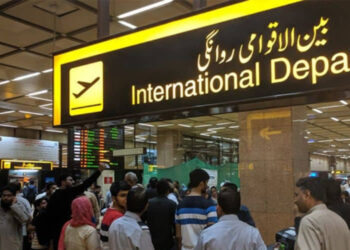ISLAMABAD: The Islamabad High Court (IHC) on Monday restrained the authorities concerned from arresting Pakistan Tehreek-e-Insaf (PTI) leader Shahbaz Gill upon his return to Pakistan.
The court issued the directives while hearing a writ petition filed by the politician seeking protective bail in the same case. The petition stated that Gill had been falsely implicated in several FIRs to “harrass, pressurise, blackmail and humiliate”.
The petition also stated that Gill was ready to appear before the court to prove his innocence but was prevented from doing so as the current government was bent upon arresting him at any cost.
When the IHC CJ took up the petition, Gill’s lawyer Advocate Faisal Chaudhry told the court that his client was in the United States when the incident occurred. When Justice Minallah asked where Gill was, Chaudhry replied that the PTI leader had left for the US on April 28 and would return on May 4.
The lawyer further informed the court that 11 different cases had been registered against Gill and others in several cities, including Faisalabad, Attock, Jhelum, Burewala, Karachi, Jhang and Islamabad. “The petitioners are being targeted for political revenge,” he argued.
Earlier in the day, the PTI filed a petition in the IHC seeking the intervention of the court to end “harassment” by the state authorities after the registration of multiple cases against PTI leadership, including Chairman Imran Khan.
The FIRs were lodged on Sunday against former premier Imran and other top leaders of the party in Faisalabad and other cities of Punjab over their alleged involvement in the incident in Masjid-e-Nabwi, where some Pakistani pilgrims shouted slogans against the new government and ridiculed Prime Minister Shehbaz Sharif and the federal ministers.
The FIR was registered under the following sections of the Pakistan Penal Code: 295 (harming or defiling a place of worship with intent to insult a religion), 295-A (deliberate and malicious acts intended to outrage religious feelings of any class by insulting its religion or religious beliefs), 296 (disturbing religious assembly) and 109 (abetment).





































